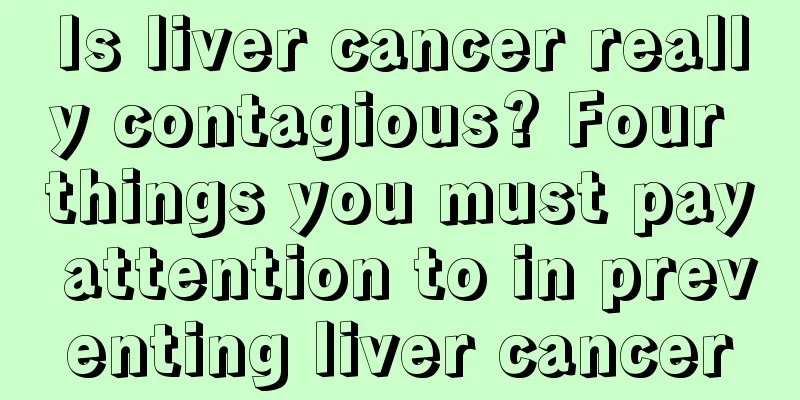What is the cause of anal pain after defecation

|
As many people pay more and more attention to their health, when their anus hurts after defecation, it attracts their attention. They want to fully understand the cause of anal pain after defecation? The following content introduces the causes in detail for many patients who have anal pain after defecation. In order to recover as soon as possible, you can have a comprehensive understanding. Anal pain after defecation is mostly caused by dry stool. The most common site of occurrence is behind or in front of the anus. Men, women, young and old can all suffer from this disease. Symptoms of anal fissure are pain and bleeding. The pain is very characteristic, with a sudden knife-like pain during defecation (caused by feces cutting the skin of the anal canal), followed by a brief relief, and then long-term anal pain (caused by spasm of the anal sphincter after stimulation). It is common in clinical practice that patients are afraid of defecation due to fear of pain, resulting in a vicious cycle of "fear of pain - holding back defecation - dry stool - more pain". The bleeding caused by anal fissures can be more or less depending on the degree of blood vessel tearing. It is common to see anemia due to long-term or heavy bleeding from anal fissures. If anal fissure is not accompanied by external hemorrhoids, anal canal stenosis, anal papilloma, etc., it can be cured through conservative treatment. If it is accompanied by these complications, surgery is required. There are many reasons for anal bleeding, including hemorrhoids, anal fissures, rectal polyps, enteritis, and even colorectal cancer. The specific diagnosis can only be confirmed through anorectal specialist examination. Anal fissure is one of the more painful anal diseases and can be accompanied by many anal discomforts, so you should pay attention to the following: (1) Maintain smooth bowel movements. After dry and hard feces are formed, do not struggle to defecate. You can choose warm saline enema or paraffin oil enema to smooth bowel movements. (ii) Treat anal crypt inflammation promptly to prevent infection and the formation of ulcers and subcutaneous fistulas. (3) Timely treatment of various diseases that cause anal fissures, such as ulcerative colitis, to prevent anal fissures from occurring. (IV) Drink less alcohol, avoid spicy food, avoid eating too refined food, combine coarse and fine grains, and consume as much fiber-rich food as possible, such as vegetables, to keep bowel movements normal. Early detection, early examination, and early treatment. What is the cause of anal pain after defecation? Through the introduction in this article, I believe that many patients who experience anal pain after defecation have fully understood the cause of this condition. After fully understanding its cause, it must be taken seriously, because the long-term existence of this condition will seriously affect the health of one's anus. After a comprehensive understanding, it is necessary to improve it through treatment as soon as possible. |
<<: Common causes of edema-type obesity
>>: Why does the anus hurt when pooping?
Recommend
How to clean broccoli?
Broccoli is a very common food in our lives. It i...
What medicine to take for rhinitis and pharyngitis
There are many patients with rhinitis in our live...
Tonsillar white membrane
Tonsillar white membrane, that is, the protective...
Diagnosis of spleen rupture
There are several important parts in the human bo...
How many times should percutaneous interventional treatment for lung cancer be performed? Not necessarily, there are many related factors
It is hard to say how many times lung cancer pati...
What are the symptoms of neuromyelitis?
Disease is a great destructive factor to people&#...
People must know the main symptoms of colorectal cancer
If cancer is scary, then experts say that people ...
How to recover from elbow joint stiffness
People's joints will undergo some changes as ...
Normal amniotic fluid color
I believe everyone knows that amniotic fluid is a...
Is bloodletting and cupping harmful to the body?
Bloodletting and cupping is also a form of cuppin...
What to do if you have trouble sleeping due to stress
Everyone faces various pressures. Students face a...
What is the difference between parsley and celery
Parsley and celery are both relatively common veg...
What are the traditional Chinese medicines for fighting ovarian cancer
In today's society, many female friends have ...
The hazards of radiotherapy for brain metastasis of lung cancer
Brain metastasis is a common metastasis of lung c...
Twelve super effective ways to improve memory
Learning is an essential part of people's liv...









